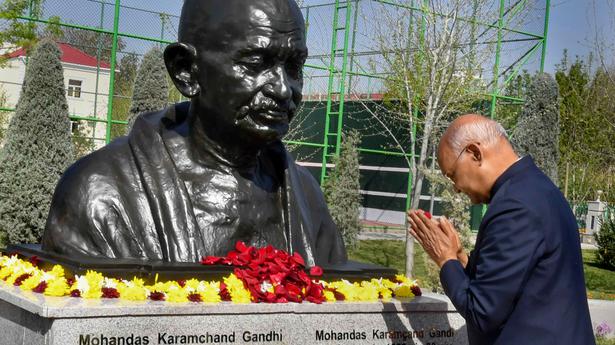
Engagement with Indo-Pacific goes back several centuries: President Kovind
The Hindu
India stands for a balanced, rules-based regime, he says.
India’s engagement with the Indo-Pacific goes back several centuries and the country stands for an open, balanced, rules-based and stable international trade regime in the strategically vital region, President Ram Nath Kovind has said.
Interacting with young students at the prestigious Institute of International Relations here on Saturday, President Kovind said India’s approach is based on cooperation and collaboration and is elaborated through the vision of SAGAR (Security and Growth for All in the Region).
“SAGAR guides our approach towards both the Indian Ocean and the Indo-Pacific regions,” he said in a statement issued by the External Affairs Ministry on Sunday.
"While ‘Indo-Pacific’ is a recent addition to the geopolitical lexicon, India’s engagement with the Indo-Pacific region goes back several centuries. The dynamism and vitality of the region make it a global economic centre. We stand for an open, balanced, rules-based and stable international trade regime in the Indo-Pacific,” the president said, in a veiled reference to China which has been acting aggressively in the region.
India, the U.S. and several other world powers have been talking about the need to ensure a free, open and thriving Indo-Pacific in the backdrop of China's rising military manoeuvring in the resource-rich region.
China claims nearly all of the disputed South China Sea, though Taiwan, the Philippines, Brunei, Malaysia and Vietnam all claim parts of it. Beijing has built artificial islands and military installations in the South China Sea. China also has territorial disputes with Japan in the East China Sea.
He said one of the key pillars of India’s foreign policy in recent years has been the "Neighbourhood First” policy, the focus of which is to enhance connectivity, augment trade and investment, and build a secure and stable neighbourhood.













